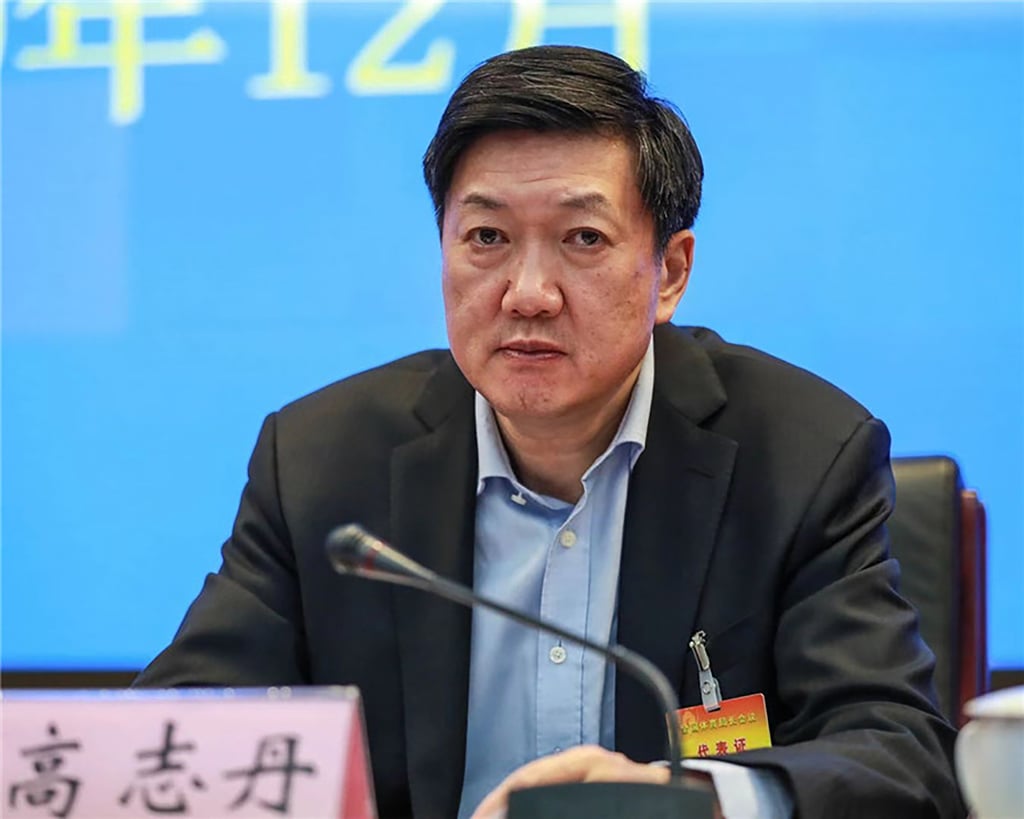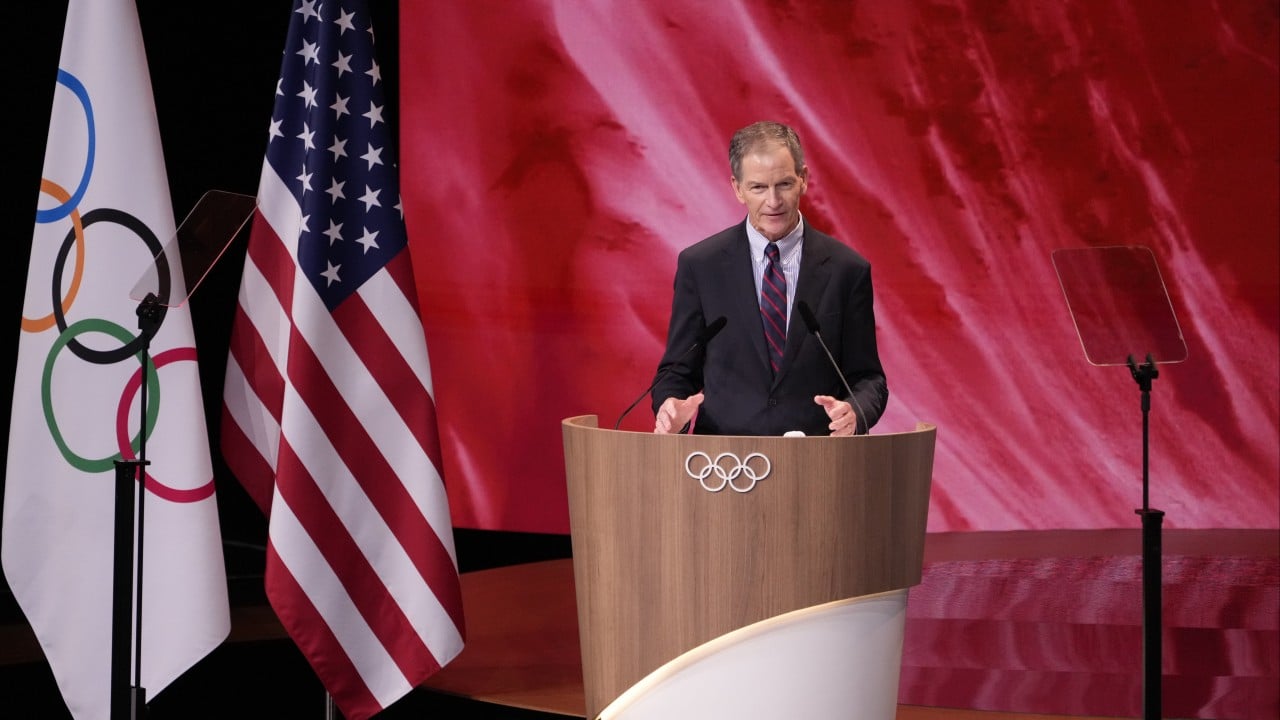China has urged the United States to fulfil its commitments and cease “long-arm jurisdiction” practices to ensure the smooth and safe participation of athletes from all countries when it hosts for future Games.
“China supports the US in hosting both the Los Angeles 2028 Olympics and the Salt Lake City 2034 Winter Games,” said Gao Zhidan, head of the nation’s sport administration and chairman of the Chinese Olympic Committee, speaking to his US counterpart Gene Sykes in Paris on Tuesday.
“However, it is essential that the US ensures a safe and smooth competition environment for all athletes, including those from China. This requires a commitment to stopping any ‘long-arm jurisdiction’,” said Gao, according to the official China Sports News.
He emphasised the shared responsibility of both nations to maintain the principles of the Olympic Charter, defend the global anti-doping governance system, and protect the legitimate rights and interests of “clean athletes”, according to the Chinese report.
In response, Sykes congratulated Chinese athletes on their impressive performance at the Olympics and affirmed the role of sports in promoting people-to-people exchanges and mutual understanding between China and the US, the report said.
Sykes was quoted as saying he supported the establishment of “a robust governance system” by the World Anti-Doping Agency (Wada) and promised to actively promote the resolution of related issues, “creating a favourable environment” for athletes from around the world, including those from China, to train and compete in the US.

The conversation came as a doping scandal involving Chinese swimmers at the Paris Olympics has escalated tensions between the US and China.
Wada has also faced criticism for its handling of positive drug tests.
Before the Tokyo Olympics in 2021, 23 Chinese swimmers tested positive for trimetazidine (TMZ), a heart medication that can boost performance. But these athletes were cleared to compete after Wada accepted the Chinese Anti-Doping Agency’s assertion that they were contaminated through food.
Some of these swimmers have returned to compete in Paris, leading to allegations of a cover-up by Wada and the Chinese authorities.
US Anti-Doping Agency (Usada) chief Travis Tygart has been a vocal critic of the move, accusing Wada of failing to conduct independent investigations and covering up findings related to the cases.
Wada has rejected the accusations as defamatory and continues to assert its commitment to combating doping in sports.
“As we have seen over recent months, Wada has been unfairly caught in the middle of geopolitical tensions between superpowers but has no mandate to participate in that,” the organisation said in a statement on July 30.
Tensions heightened further when US lawmakers threatened to reduce funding to Wada unless it took stronger action against doping violations.
The International Olympic Committee (IOC) warned on Wednesday that failure to support Wada’s leadership could jeopardise the Los Angeles and Salt Lake City Games.
The IOC included an amendment in the host city contract for Salt Lake City, which was awarded the 2034 Winter Olympics late last month, stating that the Olympic host agreement could be revoked “if the supreme authority of Wada in anti-doping efforts is not fully respected or if the enforcement of the anti-doping code is obstructed or compromised”.
Back in Paris, some American, British and Australian athletes and coaches have expressed concerns about the integrity of the competition, while Chinese officials have criticised what they perceive as a double standard in how doping allegations are directed against Chinese athletes compared with their American counterparts.
According to World Aquatics, the global governing authority, Chinese swimmers underwent the highest number of anti-doping tests before the Paris Olympics, averaging 21 tests per athlete – nearly four times the number taken by their American counterparts.
Chinese athletes have also expressed concerns about how these tests have impacted their performance during the Paris Games.


